MercoPress. South Atlantic News Agency
Antarctica
-
Tuesday, February 17th 2026 - 12:00 UTC
Under Antarctic ice, Earth’s deepest gravity “low” points to a 70-million-year story

A new study has reconstructed the evolution of the planet’s strongest nonhydrostatic geoid depression —the Antarctic Geoid Low (AGL)— finding that the feature has persisted for at least 70 million years and underwent a major shift in both position and strength between roughly 50 and 30 million years ago.
-
Thursday, February 5th 2026 - 12:34 UTC
Argentina, US set to stage ‘Atlantic Dagger’ in high-profile special forces drill

Argentina and the United States are finalizing plans for “Daga Atlántica” (Atlantic Dagger), a joint special operations exercise expected to become one of the most politically significant bilateral defense activities in recent years—aimed at boosting interoperability, shared procedures and combined planning.
-
Monday, February 2nd 2026 - 03:44 UTC
Argentina probes alleged pollution and abuse claims at key Antarctic outpost
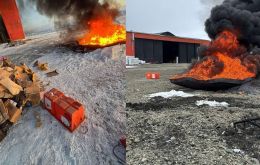
An internal complaint alleging prohibited environmental practices and mistreatment of personnel triggered an investigation at Petrel Antarctic Base, a key enclave in Argentina's logistical deployment in Antarctica. The investigation is being conducted by the Antarctic Joint Command (COCOANTAR), led by Maximiliano Mangiaterra.
-
Saturday, January 31st 2026 - 23:28 UTC
U.S. Coast Guard icebreaker frees luxury cruise ship trapped in Antarctic sea ice

A high-end expedition cruise vessel, the Scenic Eclipse II, received assistance from the heavy icebreaker USCGC Polar Star after becoming beset by dense sea ice in the Ross Sea in mid-January, according to the U.S. Coast Guard.
-
Thursday, January 29th 2026 - 10:05 UTC
UK and Chilean air forces share Operation ‘Austral Endurance’ in Antarctica

British Forces South Atlantic Islands, BFSAI, stationed at the Falkland Islands have completed Operation ‘Austral Endurance’, strengthening the UK’s ability to operate safely and responsibly in the Antarctic.
-
Thursday, January 29th 2026 - 09:18 UTC
South Georgia opens license application for 2026 toothfish fisheries
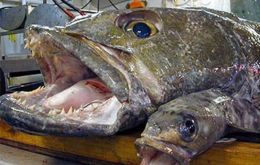
The Government of South Georgia and South Sandwich Islands, GSGSSI has announced the opening of the license application round for the 2026 South Georgia & the South Sandwich Islands toothfish fisheries.
-
Tuesday, January 27th 2026 - 10:59 UTC
Why a U.S. military plane landed in Ushuaia: lawmakers, ports and geopolitics

The landing in Ushuaia of a U.S. Air Force aircraft carrying a bipartisan delegation of U.S. lawmakers has reignited political controversy in Argentina’s Tierra del Fuego province and sharpened attention on the country’s strategic footprint in the South Atlantic and Antarctica, amid deepening ties between President Javier Milei and U.S. President Donald Trump.
-
Wednesday, January 21st 2026 - 13:16 UTC
UK investment in Antarctica underlines role as a leading polar research nation
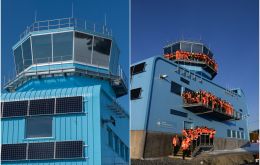
A major new British Antarctic Survey (BAS) facility at Rothera Research Station is being presented as evidence of the UK’s standing in polar research. The £100 million Discovery Building—together with a new services network at Rothera—has been formally opened by BAS Director Professor Dame Jane Francis, completing what BAS describes as the largest UK construction project ever carried out in Antarctica.
-
Monday, January 19th 2026 - 12:59 UTC
South Georgia, Discovery Investigations: 100 Years Of Marine Science Stamp Release
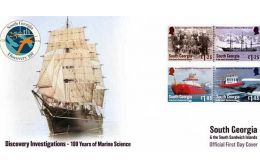
Two-hundred and fifty years ago Captain James Cook landed at Possession Bay and took possession of South Georgia, in the name of King George III and his heirs.
-
Monday, December 29th 2025 - 10:36 UTC
Pumas shift to eating penguins along Argentine coast
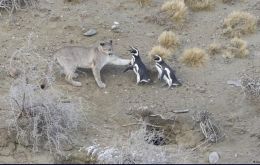
A recent study published in Proceedings of the Royal Society B has documented an unprecedented ecological interaction in Argentina, where Pumas (Puma concolor) are hunting Magellanic penguins (Spheniscus magellanicus) along the Patagonian coast as a direct result of historical human intervention.
